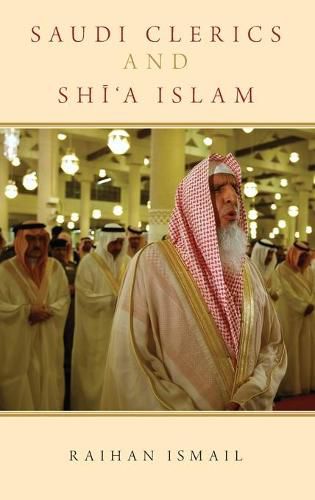Readings Newsletter
Become a Readings Member to make your shopping experience even easier.
Sign in or sign up for free!
You’re not far away from qualifying for FREE standard shipping within Australia
You’ve qualified for FREE standard shipping within Australia
The cart is loading…






The Saudi ulama are known for their strong opposition to Shi'a theology, Shi'a communities in Saudi Arabia, and external Shi'a influences such as Iran and Hezbollah. Their potent hostility, combined with the influence of the ‘ulama’ within the Saudi state and the Muslim world, has led some commentators to blame the Saudi ‘ulama’ for what they see as growing sectarian conflict in the Middle East. However, there is very little understanding of what reasoning lies behind the positions of the ‘ulama’ and there is a significant gap in the literature dealing with the polemics directed at the Shi'a by the Saudi religious establishment. In Saudi Clerics and Shi'a Islam, Raihan Ismail looks at the discourse of the Saudi ulama regarding Shiism and Shi'a communities, analysing their sermons, lectures, publications and religious rulings. The book finds that the attitudes of the ulama are not only governed by their theological convictions regarding Shiism, but are motivated by political events involving the Shi'a within the Saudi state and abroad. It also discovers that political events affect the intensity and frequency of the rhetoric of the ulama at any given time.
$9.00 standard shipping within Australia
FREE standard shipping within Australia for orders over $100.00
Express & International shipping calculated at checkout
The Saudi ulama are known for their strong opposition to Shi'a theology, Shi'a communities in Saudi Arabia, and external Shi'a influences such as Iran and Hezbollah. Their potent hostility, combined with the influence of the ‘ulama’ within the Saudi state and the Muslim world, has led some commentators to blame the Saudi ‘ulama’ for what they see as growing sectarian conflict in the Middle East. However, there is very little understanding of what reasoning lies behind the positions of the ‘ulama’ and there is a significant gap in the literature dealing with the polemics directed at the Shi'a by the Saudi religious establishment. In Saudi Clerics and Shi'a Islam, Raihan Ismail looks at the discourse of the Saudi ulama regarding Shiism and Shi'a communities, analysing their sermons, lectures, publications and religious rulings. The book finds that the attitudes of the ulama are not only governed by their theological convictions regarding Shiism, but are motivated by political events involving the Shi'a within the Saudi state and abroad. It also discovers that political events affect the intensity and frequency of the rhetoric of the ulama at any given time.